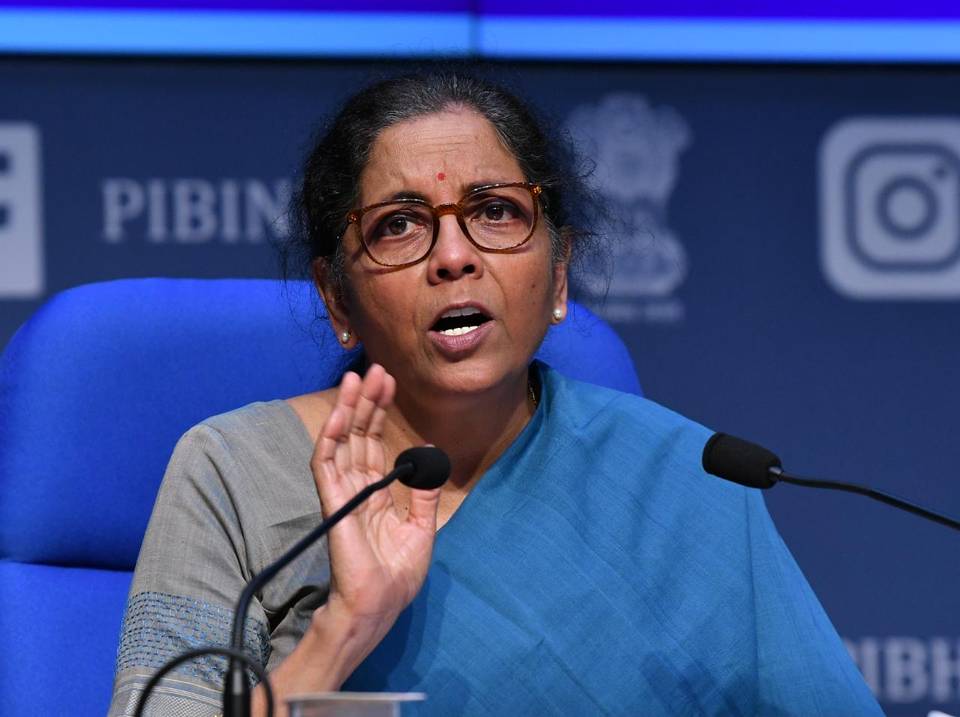In the backdrop or pretext of COVID-19, several major decisions are coming out from the Central government. The fourth tranche of stimulus measures announced by Finance Minister Nirmala Sitharaman is noted mainly for the decisions to privatize many sectors from Indian Space Research Organization (ISRO) to coal – a stark pull back from the Coal nationalization by Indira Gandhi in the early 1970s. The mineral sector too would be opened up for private parties, and this would be done under a profit-sharing basis. So also with the atomic energy sector as also power.
The nationalization of coal was done with an idea to protect natural resources and the state was involved to ensure fair play in power production. However, the UPA had also tried privatization of coal blocks and carried out auctions. The then Comptroller and Auditor General (CAG) Vinod Rai had produced a scathing report which claimed the blocks were virtually gifted away to select corporates. This charge of high level corruption prompted the Supreme Court to cancel all licenses and restore status quo. The Coal Block and 2G scams were the primary reasons for catapulting Narendra Modi and the BJP to power in 2014. The political change seemed to bury the Coal Gate issue and citizens had an impression that the new government would have learnt lessons and will behave differently.
Now, under the COVID blanket, a whole set of privatization effort seems to be underway. Starting from privatization in coal mining and other minerals to private investment in ISRO and defence production, the list seems to be endless. This reminds us of a similar situation that arose during the second term of the UPA. Convinced that they would be losing power, every member of the Manmohan Singh government independently set about creating personal assets at a tremendous cost to the nation. However, the situation today being as it is, Indians at large are incapable to express dissatisfaction even on simple illogical anti-people decisions as the hike in prices of petroleum products. It is impossible to understand what reasons could be lurking in the background for which fuel prices have been raised. Interestingly, the position of fossil fuel is such that prices have plummeted down globally while there are no takers. There was a time when petrol pumps used to get long queues of people to fill up tanks when a price hike was announced. Since fuel price rise always makes commodities dearer, there were public protests against such decisions. Now, people are neither scurrying to fill their tanks up nor are they considering any protest. This could be demonstrating an extreme level of fatigue amongst the populace in relation to various government decisions. The mismanagement in the inner workings of the Union government was first noticed from the time the Prime Minister announced Demonetisation. Changing the rules multiple times every day tired the people out and crippled trade and business across the country.
FDI limit in defence production has been raised from a cautious 49 per cent to 74 per cent. Added to this is a ban imposed on purchase of certain critical imported arms and equipment. Henceforth, Indian forces will be mostly carrying indigenous equipment whose actual testing may occur in a real battle situation. If so, issues of quality compromise could arise. The civil aviation sector would open up further for international airlines, meaning further hits to national carrier Air India and AIE, as also to India-based private airlines. Aviation sector in India, as exemplified by Indigo, had turned the corner and was doing exceedingly well. So much so that Indigo’s owner Rahul Bhatia has become the prime bidder for Virgin Australia, which is a known loss making airline of that country. The story of Indigo proves that many exclusively Indian companies possess tremendous wealth and are capable of buying up assets across the world. This has been made possible for these companies because of the government turning a blind eye to the excessive profit making activities of most Indian corporates. Viewed in this backdrop, the economic stimulus announced in multiple phases by the Finance Minister, does not give an impression that the vast sums promised will reach the pockets of the common man who is under intense economic stress. While no one can question the government now; the system has seized this golden opportunity and seems to be working out its devastating wish list. Whether 20 lakh crore has thirteen or fourteen zeroes are difficult for a common man to be certain. Yet, every single rupee promised in the stimulus is from the direct contribution of every single citizen. In simpler words, these astronomical figures belong to us but are now being distributed as government largesse to corporates. These so-called loans will go to companies that will eventually refuse repayment. Or better still, most of this money will be repatriated to foreign banks by cohorts of the present rulers.
